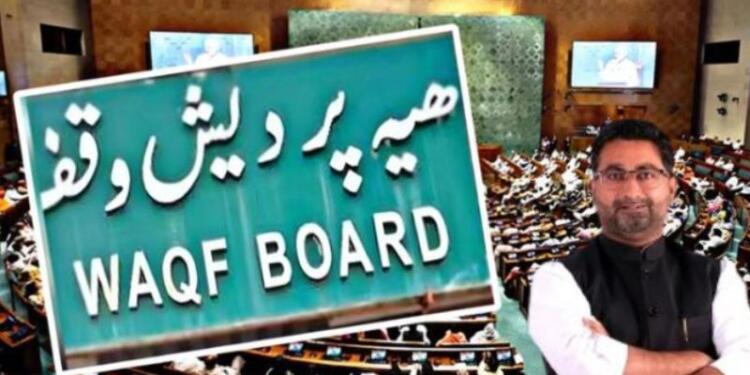All waqf properties will soon undergo mandatory audit in Uttar Pradesh as announced by the State Minister for minority welfare, Muslim waqf and Haj Danish Azad Ansari. Ansari, a minister in the Yogi Adityanath cabinet, stressed that he suspects a possible embezzlement of ₹1100 crore annually by the Waqf Board, which he mentioned that it will be verified through mandatory audit.
Ansari expressed happiness over the passage of the Waqf Amendment Bill stating that it will be a milestone in the welfare of Muslims. According to them, those who were opposing the bill were doing it for their vested interests.
Ansari told Hindustan Times that the Waqf Amendment Bill will bring in more transparency by auditing the Waqf properties mandatory and curbing any corrupt practices. Busting misinformation around the Waqf Amendment Bill 2025 dubbed officially as UMEED act, the Minister noted that the Waqf act has gone through several amendments.
Speaking to HT at his official residence, Ansari said, “The Waqf Amendment Act is a crucial step for changing India by the Narendra Modi government. This is not the first amendment by any government, in 1954,1995 and in 2013 also, there were amendments. Muslims should not think that this amendment is the first of its kind. The Waqf Board is an administrative body and not a religious body as considered by many. The constitution of the Waqf Board is done by the state government and in different districts, district magistrates have been looking after the work of Waqf. This is also nothing new.”
Also Read: Beyond Religion: The Economic and Legal Realities of Waqf in India
According to Ansari, the fight is between ‘special’ vs ‘common’ Muslim. Those opposing the Bill are doing it for their vested interest, they have nothing to do with the welfare of backward Muslims.
Ansari further stated that their focus is to implement all the rules and regulations with most of them being available previously also.
There was a provision for auditing as well, but it was not done. Now, an audit has been made mandatory after the new amendment, the Minister added.
According to Ansari, the approximate value of around 1.25 lakh Waqf properties in the country stands at around ₹1.25 lakh crore. As per him, this should generate an annual revenue of ₹1200 crore. However, the Waqf Board is currently generating only ₹150 crore of annual revenue leaving a wide gap of around ₹1100 crore.
Also Read: Exposing Misinformation and Fear Mongering on the Waqf Amendment Bill: Key FAQs Explained
He asked, “Where is this money going? If this ₹1100 crore was coming to the Waqf Board every year, then 800 schools/colleges would have opened which, in turn, would have helped the poor Muslims. Around 200 hospitals would have opened, which again would have helped the poor, also many skill development centres would have been opened. I can smell embezzlement of ₹1100 crore every year through the Waqf Board.”





















